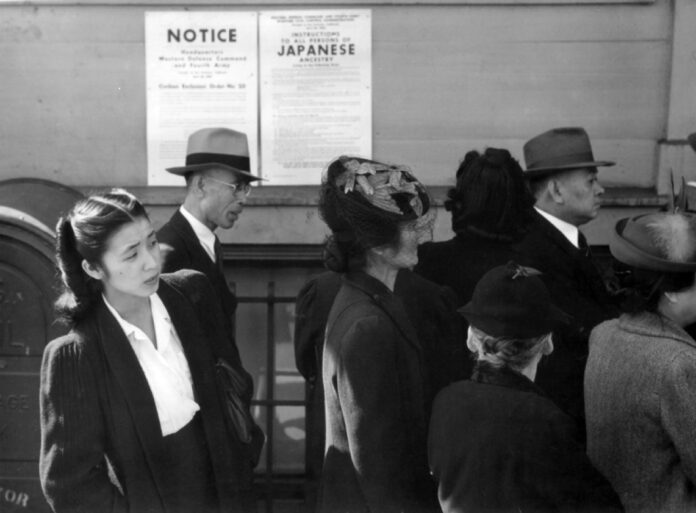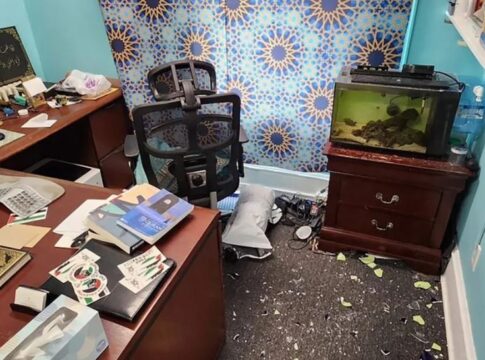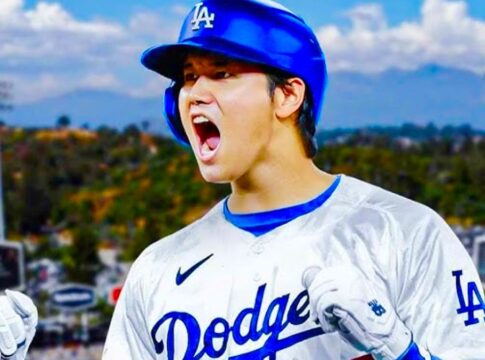A high school in California’s Bay Area gave 40 Japanese American students honorary diplomas Tuesday after they were denied graduation during World War II. The symbolic diplomas are an attempt to right historical wrongs.
“Having to be pulled away from high school, having to pack up everything in two suitcases and be hauled into a camp… And just because of what we look like, because we look like the enemy,” Karen Leong told NBC News Bay Area, discussing what her uncle Tatasuki Kanada endured at age 17, when he was ripped from Mt. Diablo High School in Concord, California and sent to an internment camp with his family during World War II.
Kanada’s niece and nephew accepted the diploma on their uncle’s behalf. Kanada, an army veteran who fought in World War II, died in 2007.
“If he was still alive today, he’d be humbled and overjoyed,” said Kanada’s nephew, Gordon Kanada, who described his uncle with the nickname “Uncle Tuffy” because of his football background but added to CBS News that he was “always very gentle.”
Colin Ehara, the grandson of another incarcerated student who was honored, John Ehara, spoke of his grandparents’ silence about their internment.
LATEST STORIES
“It’s kind of swept under the rug,” he said in an interview with the San Francisco Chronicle.
It was only when he interviewed his grandmother for an ethnic studies class at UC Santa Cruz that he learned of life inside the camps.
Ehara was a second-generation Japanese American, who was drafted to work as a translator for U.S. Army Intelligence after being incarcerated. Later in his life, he started a gardening business. Gardening and landscaping was a celebration of Japanese culture and even sometimes an act of political resistance within the camps, according to California State University, Fullerton researchers.
His passion for gardening was a way of beautifying life, despite “some of the most horrific kind of destruction that human beings have ever created,” said the grandson, who lives in his late grandfather’s home with a garden designed by him.
This belated graduation is due to the efforts of the school’s ethnic studies students.
One student, Stephanie Patino, told NBC News Bay Area, “I was shocked knowing that people who actually attended my school had to go through something so bad.”
When the students found out that Japanese American students never got diplomas, they began writing letters and making speeches to convince the school board. It was an intense student project that involved digging through the school’s 1942 yearbook to find descendants of the students forced to leave.
“I was just writing about the effects afterwards, like how not having a diploma affected their lives,” Jesus Elias, who participated in the letter-writing campaign, told CBS.
A camp survivor and Mt. Diablo alum of 1958, Kimi Tahiri Dowell, also worked on the project with the students. Dowell was 2 when she and her parents were incarcerated at two “relocation centers.”
“Granted, it has been 80 years,” she told the San Francisco Chronicle. “But in our view, there is no statute of limitation for restorative justice.”
After two years of advocacy, their work was rewarded. The families of the interned students accepted the honorary diplomas at Tuesday’s graduation ceremony; only five of the students are still living, but they are in their 90s and physically unable to attend, reports the San Francisco Chronicle.
The current students named them honorary members of the Class of 2022. Salutatorian Amver Castillo emphasized, “I want to let them know that they’re very welcomed and they have every right to share a moment in our graduation as the class of 2022.”
“It’s the least we can do to help them feel a little bit better about the bad times,” Patino told CBS News.
“It’s just a small gesture really. We understand this is 80 years too late, but we just wanted to tell them they matter to us, and they’re part of our community,” ethnic studies teacher Laura Valdez, who helped facilitate the students’ project, told NBC Bay Area.
Kanada’s family says they are grateful for the students who fought for the diplomas and that the school is finally attempting to make amends for the students who were never able to graduate high school.
“I just wish he was here to get it himself,” said Karen Leong of her uncle, according to NBC Bay Area.
Colin Ehara was also thankful for acknowledgment of his grandfather. However, he contended that “there’s also still a lot of work to be done when it comes to addressing violence that’s taken place in the past that still impacts the lives of people today.”
AsAmNews has Asian America in its heart. We’re an all-volunteer effort of dedicated staff and interns. Check out our new Instagram account. Go to our Twitter feed and Facebook page for more content. Please consider interning, joining our staff, or submitting a story, or making a financial contribution.








